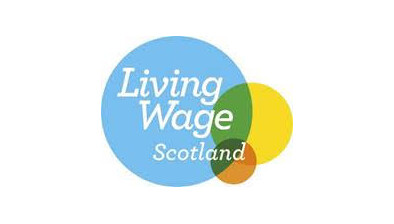England: Quarter of councils ‘may sell homes to balance books’

Years of financial strain have forced councils across England to reduce their maintenance of council homes, cancel new build projects and even sell off existing housing stock, according to new research by Southwark Council.
A survey of 76 ‘stockholding’ councils, a cross-party group of authorities collectively managing over 870,000 council homes across the country, found that nine in 10 expect to use emergency funds to try to balance the books in the next few years. For example, 61% of councils have already cancelled, paused or delayed housebuilding projects and more than one third have cut back on repairs and maintenance of council homes.
Southwark Council said the survey, which follows its major 2024 report signed by 109 cross-party councils, provides further evidence of the scale of crisis council housing budgets have been forced into by capped incomes, soaring costs and frequent policy changes since 2010.
Despite government measures – such as reducing Right to Buy discounts – the situation is set to worsen.
In order to balance their budgets before the next general election:
- 71% of councils expect to cancel, pause or delay current projects
- 68% expect to scale back their overall commitments to redevelop or build new council homes
- 28% expect to sell off existing council homes to make ends meet
Even with these steps, 67% of councils say there is a risk they will not be able to set a balanced budget.
Nearly half of councils told Southwark they have been forced to use their reserves – funds meant to cover emergencies - to cover day-to-day spending. More than a third reported that they would empty these emergency funds by the end of this parliament.
Responding to the anonymised survey, councils also reported being in discussions with the UK Government about exceptional financial support and fearing soon being unable to meet even their statutory obligations.
Councillor Kieron Williams, leader of Southwark Council, said: “The government’s ambition to build 1.5 million new homes is critical to ending the housing crisis and council housing must play a central role in this effort. However, without significant further action councils will be unable to build at scale and unable to bring existing homes up to green and decent standards fit for the future.”
The ‘Securing the Future of Council Housing’ report, signed by 109 councils from across England, set out a number of recommendations to the government to save council housing. Councils will be looking for the Comprehensive Spending Review to include:
- Agreeing a new, sustainable HRA financial model: Going back to the broken 2012 Housing Revenue Account ‘self-financing’ agreement, including reaffirming the principles that make self-financing sustainable, a fair rent settlement and addressing unsustainable debt.
- Launching a Green & Decent Homes Programme: Based on the success of the Decent Homes Programme, a long-term programme of capital investment to efficiently retrofit and modernise England’s social housing stock.
- Allocating sufficient funding for new council homes: The successor to the Affordable Homes Programme should be flexible, prioritise council homes and reflect the real cost of building.
One of the key requirements to fix broken council housing budgets is to agree rent levels for the long term. The government has proposed to set social rents at 1% higher than inflation for “at least five years”. However, the Local Government Association and councils across the country have responded to the government to make clear that this proposal alone would be insufficient to stabilise council housing budgets. Councils are instead calling for a longer term plan to achieve ‘rent convergence’ which would mean rents are set based on the value of properties and local earnings.
Cllr Williams added: “The government’s fast implementation of many of our report’s recommendations – including Right to Buy reforms and a new social rent settlement – gives us hope for the future of council housing. Like many councils, we have had to pause our ambitious home building programme on a number of sites and our Housing Revenue Account is now under intense strain. The upcoming Government Housing Strategy presents a major opportunity to give council landlords the headroom and the confidence to invest in the homes our country needs – addressing the scourge of homelessness and unlocking growth, jobs and security across the country.”
Gavin Smart, chief executive of the Chartered Institute of Housing, said: “It is concerning to see the results of Southwark Council’s survey showing the severe financial strain on councils’ housing budgets. As we noted in our report looking at housing revenue account debt and in recently commissioned Savills analysis, councils desperately need support to ensure they can maintain their homes for tenants and contribute towards the 1.5 million new homes target.
“This includes reviewing the 2012 debt settlement and ensuring rent convergence is included in the long-term rent settlement, as well as the recommendations outlined in Southwark Council’s previous report. The current system is not sustainable, and it is crucial the government acts now to protect the future of council housing, which provides a foundation for so many people.”
A spokesperson for the Ministry of Housing, Communities and Local Government, said: “We know that local government has suffered from years of short-term decisions, which is why we have already set out important steps to help them deliver the homes we need. That includes overdue reforms to the right-to-buy scheme and an extra £500m for the affordable homes programme, and we will soon set out further measures.”







